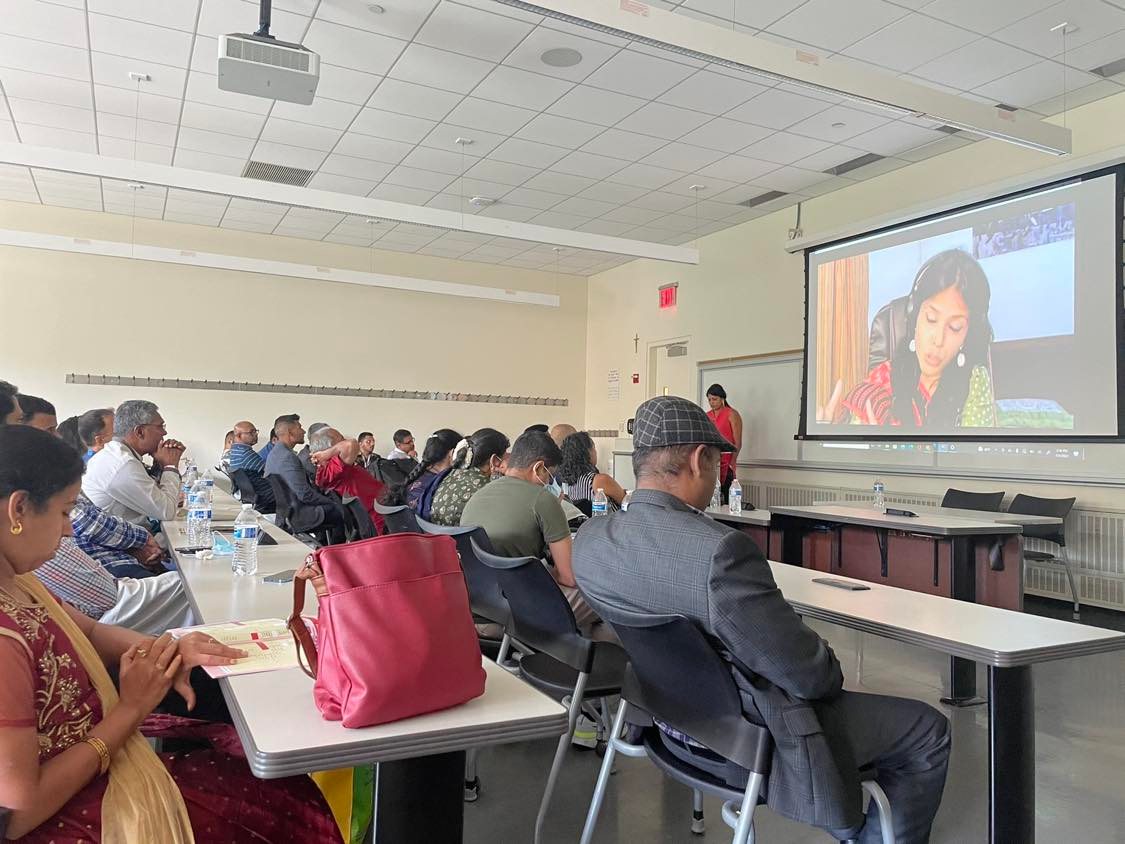
Last week, a discussion was held on "The New Frontlines of Resistance of Tamil Women" at the FeTNA 2022 summit in New York, featuring prominent Tamil activists, academics, and feminist leaders.
The panel discussion centred Eelam Tamil women's distinctive experience within self-determination and nationalist movements, and introduced the plight of Eelam Tamils to a diverse, global audience. It featured esteemed writers and activists, Dr. Meena Kandasamy and Dr. Nimmi Gowrinathan. Mario Arulthas attended on behalf of People for Equality and Relief in Lanka (PEARL), and articulated the need for Tamil organizations to amplify the voices of Tamil women. Abiramy Logeswaran of Tamil Diaspora Alliance (T.D.A.), described T.D.A.'s initiatives in the North-East to advance the economic self-sufficiency of Eelam Tamil women.
Poet Arivu, the lyricist behind the YouTube phenomenon, 'Enjoy Enjaami,' also voiced his solidarity with the Eelam Tamil community and sang an oppari paadal, originating from the Up-Country Tamil community.
Vocalist and scholar, Ganavya, also presented a moving, original piece.
Ganavya presents a piece pic.twitter.com/lGSA0dpfaA
— Tamil Guardian (@TamilGuardian) July 2, 2022
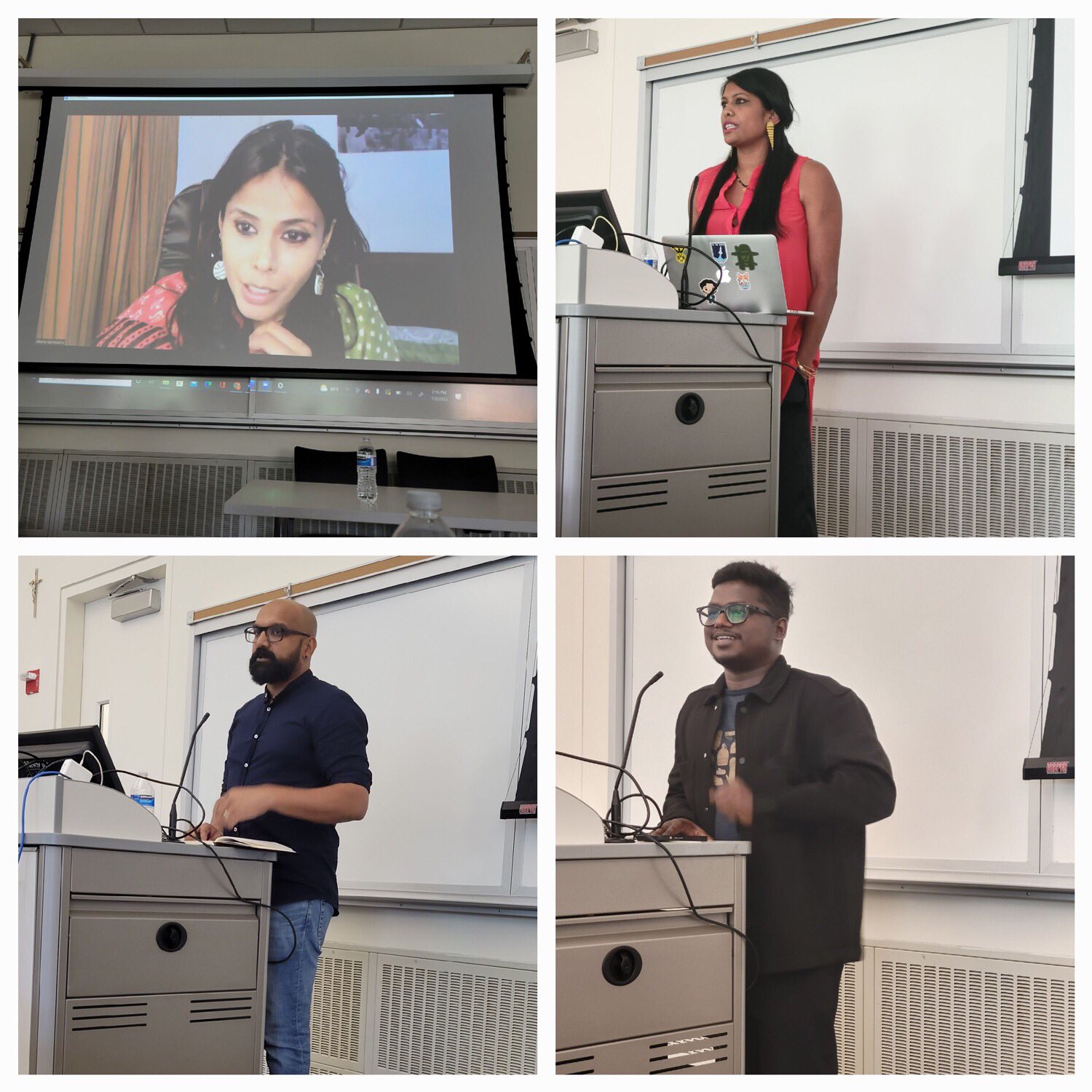 Dr. Meena Kandasamy spoke on Eelam Tamil liberation from her perspective as a high-profile feminist poet and human rights activist, born and raised in Chennai, Tamil Nadu.
Dr. Meena Kandasamy spoke on Eelam Tamil liberation from her perspective as a high-profile feminist poet and human rights activist, born and raised in Chennai, Tamil Nadu.
"As an Indian Tamil woman and also as a feminist, I often feel that discourse around Tamil nationalism often is very skeptical of feminism and what it stands for and so I really wanted to reclaim what feminism meant for the Tigers," she said.
She went on to acknowledge the role of the Indian state in perpetuating the Eelam Tamil genocide of 2009, and how she navigates this discourse as an Indian citizen.
“What does it mean for an Indian Tamil woman to speak about the rights of Eelam Tamil women or you know even the Eelam Tamil struggle for self-determination and somehow I keep thinking, that part of this is because of historical amnesia that we don't understand [...] how integrated the liberation movement was and the widespread support it enjoyed on the ground in Tamil Nadu so I find myself very organically linked to it. But it’s not this issue of just being Tamil [...] it’s also [...] ways that we don’t necessarily like or endorse. India is implicated in the genocide [...] India is implicated in what happened and [...] has been extremely diabolical [...] and has cost millions of lives and lots of rapes on the island. It has led to whatever conflict that we face at the moment."
She continued, "[...] on the one hand, how do you engage the fact that your state has done all of these atrocities? [...] the only person who can question your state is a citizen, someone who identifies as Indian [...] So I think it is a very important thing to talk about this."
"The large scale propaganda campaign of calling them terrorists, calling them as people who brainwashed and took women [...] all these negative propaganda in a sense i think [...] it’s not just about Tamils [...] it perfected how to pursue a social genocide and cultural genocide [...] how to subdue people who are standing up for their rights," said Dr. Kandasamy.
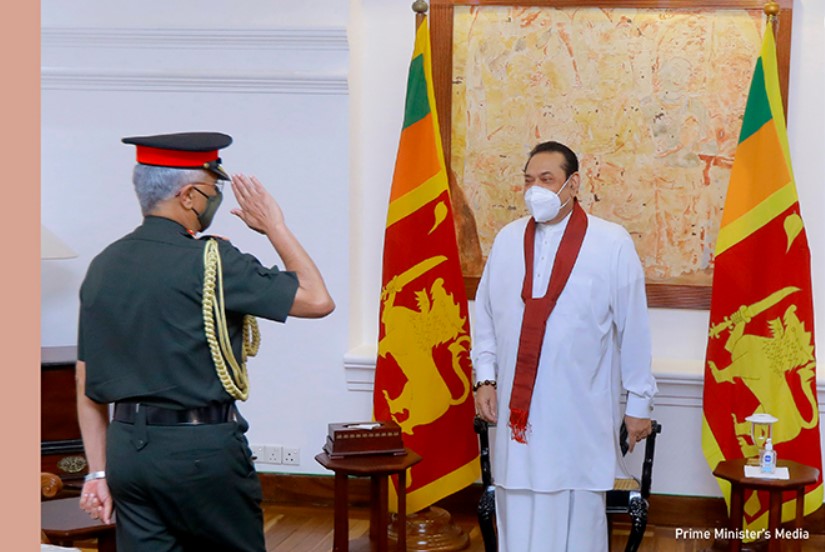
The head of the Indian army, Naravane, salutes Mahinda Rajapaksa on his 2021 tour of Sri Lanka
"My interest has been and will always be in reading politics, reading resistance from those spaces that we’re not looking," said Dr. Gowrinathan.
She is the Founder and Director of the Politics of Sexual Violence Initiative, a global study examining the impact of rape on women’s political identities in extremist movements, and a Visiting Research Professor, teaching courses on Gender and Violence at the Colin Powell Center for Global and Civic Leadership at City College New York.
"Looking at the world, the American feminist, it’s what's taken hold in the U.S. government, it’s what's taken hold in all of the governments in Europe. The white feminist cares first about sexual liberation [...] That is the point of view that exists inside international policy," said Dr. Gowrinathan.
She criticized the pervasiveness of white feminism within foreign policy discourse. "I’ve worked in the U.S. government, other governments, asylum cases [...] When you talk about things like the politics of women, like the nationalism of women - that they don’t want to hear, because the white feminist herself is accountable in that process," she continued. "When you talk about discrimination on the basis of race, the white feminist is accountable."
Dr. Gowrinathan continued saying, "[s]o there’s two spaces that you’re talking about. One is formal political work, and the other is informal political work. I started off doing formal political work, in the State Department, Congress [...] but [what] I understand very clearly was that the white feminists control the conversation on gender and as soon as you talked about violence, you were no longer part of a legitimate resistance conversation”
In speaking on Eelam Tamil women's political engagement, she says, “[t]hat space has always had to be created by themselves, they’re not interested in being given space by the state. Its something that they’ve taken."
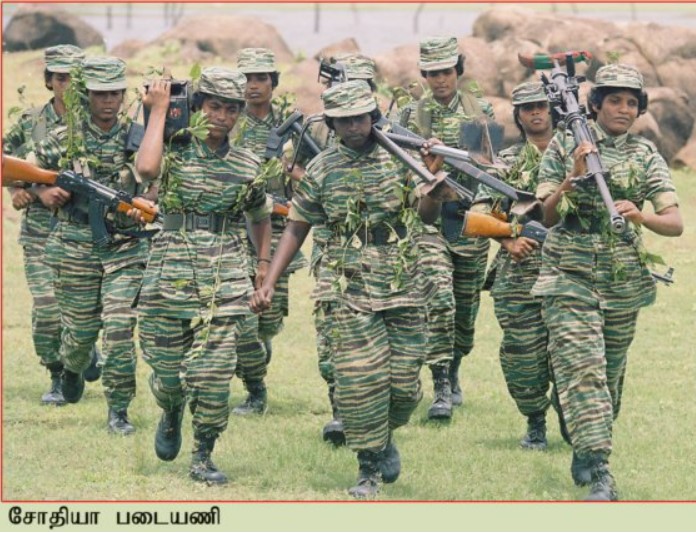
Mario Arulthas of People for Equality and Relief in Lanka (PEARL) spoke on the need for Tamil organizations to amplify the voices of Eelam Tamil women. He shared an insightful political analysis of the current economic and political crisis in Sri Lanka, by Families of the Disappeared leader Mariyasuresh Eswary.
During PEARL’s presentation, a video was played of Mariyasuresh Eswary from Mullaithivu, who spoke about the protests of Tamil families seeking information on the whereabouts of their loved ones who were disappeared at the end of the conflict. pic.twitter.com/t1yHpTzZT9
— PEARL Action (@PEARL_Action) July 7, 2022
Gowri Koneswaran shared an emotional and raw spoken word piece. She voices the traumas of Eelam Tamils through out the civil war and acknowledges their enduring oppression.
Gowri Koneswaran recites a moving original poem pic.twitter.com/1srbR3gZUM
— Tamil Guardian (@TamilGuardian) July 2, 2022
“Hello, my name is Tamil," she began. A minority in America. The second-largest ethnic group in Sri Lanka. Hello, my name is Tamil. Not a terrorist but in terror of a country, warring, gasping. Island of blood. Shape of a tear drop.”
The verses recall the historic oppression faced by Eelam Tamils at the hands of the Sri Lankan state. The piece's haunting nature provided vivid, authentic imagery of the genocide.
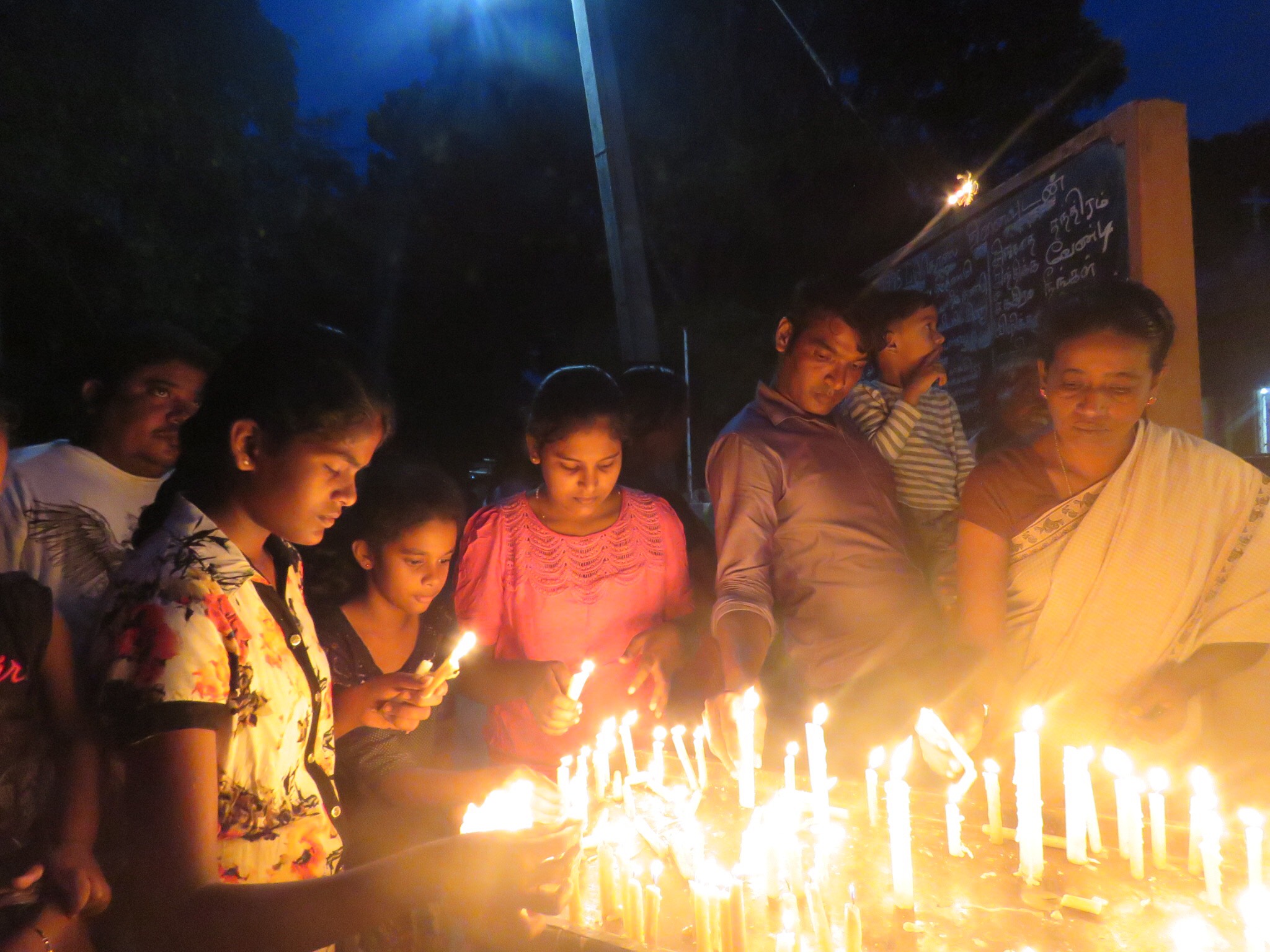
As Koneswaran recited her poem, Arivu, the poet who has found fame in Tamil Nadu's music scene, spoke of how he was profoundly moved.
Renowned for his politically conscious music that explores themes such as caste and poverty, he reflected on Koneswaran's poem saying, "[b]efore coming to the event, I had little context on the subject matter. Her poem really touched me because the first time I decided I wanted to pick up a pen to express my feelings, was during the Eelam Tamil genocide."
"It was the genocide that happened in Tamil Eelam that triggered me," said the artist.
He recalled that as a child in the ninth standard, he was exposed to the ongoing genocide through the news. Arivu noted, "[l]earning and seeing that boys my age were scared to go to school. That emotion, really touched me. I felt a connection to her poem. The first poem I wrote was called Meendum Va Mannukul (come again into the land)."
He went on to share his perspective on the panel's discussion.
"As an artist, the way I perceived the information shared today about the strength of female tigers and the current situation in Sri Lanka, I realized that we need to strengthen our art even more [...] How do we bring our issues to the world? From our side, I felt like we need to strengthen our art even more, encourage more independent artists, more poems. When we express our pain through artists, many more millions will hear it. When they see a dance, or hear a song, they will connect with it. Naturally, we are an artistic society. Now, because of technology and markets, there are many assertions that we only need to sustain ourselves economically. We are foundationally an artistic society."
Arivu further described the value he ascribes to protest through art, and his vision for building a more inclusive and equal society through his artwork.
"We need to confront casteism. At the same time, we need to confront patriarchy. I believe in protest through art. I got emotional hearing her poem from having just learned about the genocide second-hand but how many children, how many youth [...] would have witnessed it directly [...] I have a strong desire or even an yearning, you could call it, [...] to write a song about them, or a rap, or produce a music video about them [...] because there's a need to introduce this issue to the broader world [...] This is a cultural fight. There are extensive roots underlying this conflict. There's a 2000 year-long history behind the way we perceive women. After 2000 years of oppression, we are only just starting to talk about this. To build on this, we should definitely use art as a tool. We should definitely encourage artists who really understand struggle and pain and this life is like [...] we are stil fighting for yesterday."
As for when the fight for justice and equality will be achieved, Arivu is skeptical.
"We have not even started our basic life. You are all fighting for justice to be served on events of the past. So I don't know when we are going to live today’s life. Our next generation will probably be able to do that. At the very least, I hope that they can live happily and co-exist equally."

We need your support
Sri Lanka is one of the most dangerous places in the world to be a journalist. Tamil journalists are particularly at threat, with at least 41 media workers known to have been killed by the Sri Lankan state or its paramilitaries during and after the armed conflict.
Despite the risks, our team on the ground remain committed to providing detailed and accurate reporting of developments in the Tamil homeland, across the island and around the world, as well as providing expert analysis and insight from the Tamil point of view
We need your support in keeping our journalism going. Support our work today.
For more ways to donate visit https://donate.tamilguardian.com.

